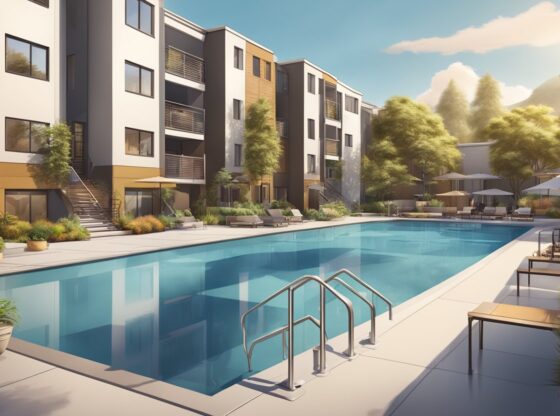Contemplating retirement brings many decisions, and one of the most significant is deciding where and how you’ll live. Whether you’ve long envisioned enjoying a coastal view or settling in a bustling city, flexibility is key. Renting a home offers unmatched freedom to explore various living options without the long-term commitment of ownership and is one of the 7 reasons you should rent a home in retirement.
When you rent, you can effortlessly adjust your surroundings to meet your evolving needs and desires. The prospect of relocating closer to family or pursuing new hobbies is easily realized when you lack the ties of mortgage obligations. Additionally, concerns about home maintenance are significantly reduced, allowing you to dedicate time to enjoying your retirement fully. Renting gives 7 good reasons to choose it for your retirement, such as less maintenance burden.
Financial considerations play a crucial role in retirement planning, and renting can often offer a more manageable and predictable expense framework. By choosing to rent, you might discover greater financial fluidity, freeing up resources for travel, leisure, and other pursuits. Ensuring peace of mind and a fulfilling retirement experience is another of the 7 reasons you should rent a home in retirement.
Key Takeaways
- Renting provides flexibility and freedom in retirement, summing up 7 solid reasons why it’s beneficial.
- You can reduce maintenance worries while focusing on enjoyment.
- More predictable expenses help in financial planning, validating the reasons to rent.
7 Reasons Why You Should Rent a Home In Retirement
1. Flexibility
If you wish to explore different locales or climates, you can do so without the burden of selling a property. This flexibility is ideal for those who desire variety in their living arrangements. You have the flexibility to relocate whenever necessary. This allows you to try living in different places without the responsibility of selling a house. Flexibility in exploring new locales is one of the 7 reasons you should rent a home in retirement.
2. Reduced Maintenance
Rental properties usually come with the benefit of property management. Maintenance and repair tasks are often handled by landlords, saving you time and effort. You only have to let know the landlord if something goes wrong and they will take care of it. No worries, is less stressful. One of the 7 reasons you should rent a home in retirement includes reduced maintenance concerns.
3. Lower Costs
Renting can offer financial advantages, such as not paying property taxes or securing large down payments. Your money can be allocated to other uses. You can save on costs like property taxes, homeowner insurance, maintenance, and repairs. This lets you allocate more money towards leisure activities, travel, or other interests. Lower costs feature prominently in the 7 reasons you should rent a home in retirement.
4. Amenities Access
You might gain access to amenities like pools or fitness centers. Enjoy these perks without the additional costs or work associated with installing and maintaining them. Many rental communities offer facilities like gyms, pools, and social areas. These features enhance your living experience without extra costs and also improve your social life. Amenities access is among the 7 reasons you should rent a home in retirement.
5. Community Living
Many rental communities offer social opportunities and events. This can help you stay engaged and connected with others. As we have said some rentals has amenities; you can use them and also get to know your neighbors. You can share activities with them and start bonding. Sharing some time in the pool you can also discover you have other interest in common with the people who lives near you. Who knows you might finished organizing a movie night, or and this impacts your social life which is important in retirement. Community living represents one of the 7 reasons you should rent a home in retirement.
6. Simplified Budgeting
Rent provides consistent monthly costs, simplifying budgeting. Unexpected expenses for repairs are typically covered by the landlord or property owner. With a fixed rent, you can plan and budget easily without the surprises that owning a property might bring. This stability can make financial planning more straightforward. Simplified budgeting reinforces the 7 reasons you should rent a home in retirement.
7. Decreased Liability
As a renter, you have less financial liability in case of property value changes. This reduces stress over market fluctuations, offering more peace of mind. Compared to buying a home. Security deposits are typically less than a down payment, freeing up funds for investment or spending. This lower barrier can make it easier to manage your finances. Decreased liability wraps up our 7 reasons you should rent a home in retirement.
Bottom Line
Renting during retirement can offer numerous benefits such as financial flexibility, easier budgeting, and increased mobility. Understanding these 7 reasons you should rent a home in retirement is crucial for making informed decisions and choose the best for you and your golden years.
Frequently Asked Questions
Monthly rent payments provide a consistent expense that can be easily factored into your retirement budget, helping you manage your finances more effectively. This predictability can help you better allocate resources for other needs and prevent unexpected financial burdens.
Downsizing often leads to lower living expenses and reduced upkeep tasks. It may also allow you to live in a community better suited to your lifestyle and social needs. A smaller space can translate to savings and comfort.
Renting offers flexibility to relocate as your needs, health, and lifestyle change. It makes it simpler to move closer to family or try living in different areas without the commitment of home ownership, providing you with more freedom in your choices.
Consider the total cost of ownership versus renting, your financial goals, and the level of flexibility you desire. Think about long-term care needs, market conditions, and personal preferences in terms of location and amenities.

